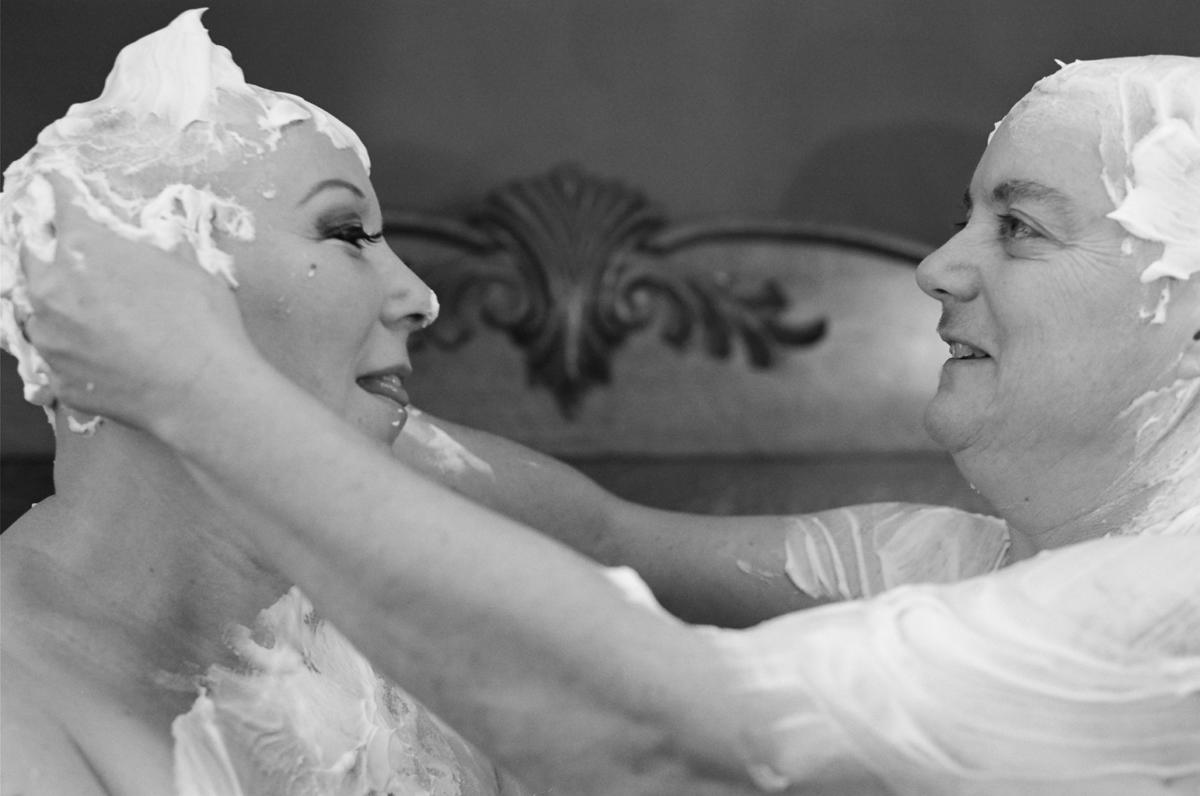
Poznań–Perched on a chair, looking into binoculars connected to an old film slide machine, an unusual image flashes on the screen: a woman who has pulled back the blue hospital sheet revealing a bare breast. Her nipple has been washed with a blue sterile fluid and her finger is coyly in her mouth.
Nowadays, viewing images usually involve swiping past them and through them. They are often not staged, but candidly banal. The posed faces of artist’s Annie Sprinkle and Beth Stephens instead hack back to earlier practices of photography where the moment was punctuated or had what Roland Barthes called the punctum.
Shown in The Romantic Adventures of Beth Stephens, Annie Sprinkle and Breast Cancer curated by Zofia nierodzińska at the Arsenal Municipal Gallery in Poznań, Cancer Erotica offers an unusual encounter with illness and femininity. Consisting entirely of a 3-D film slide presentation on the inside of an apparatus that usually contains images of war, the story unfolds in a circular rotation consisting of two distinct parts: in the hospital and in the bedroom.
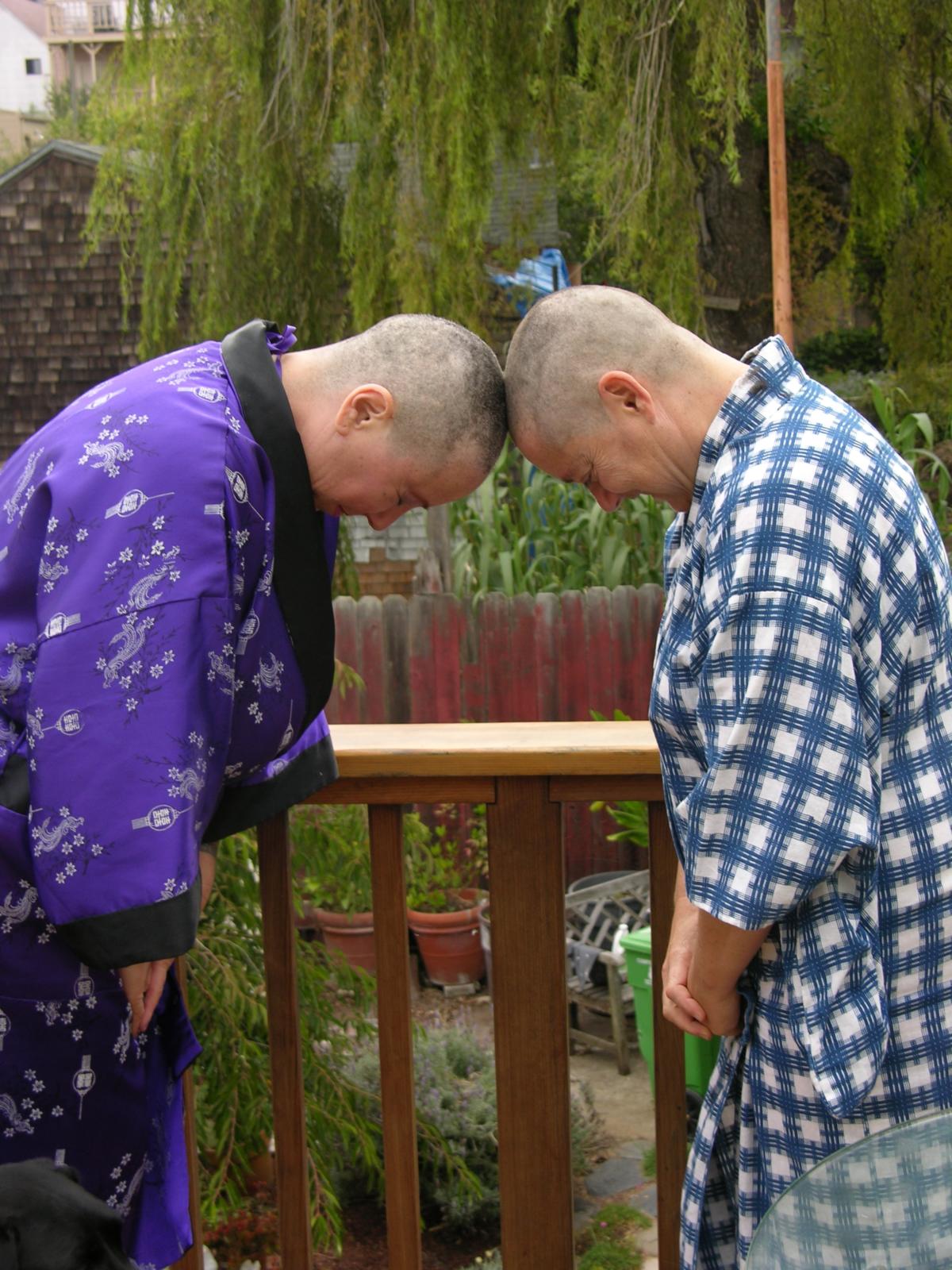
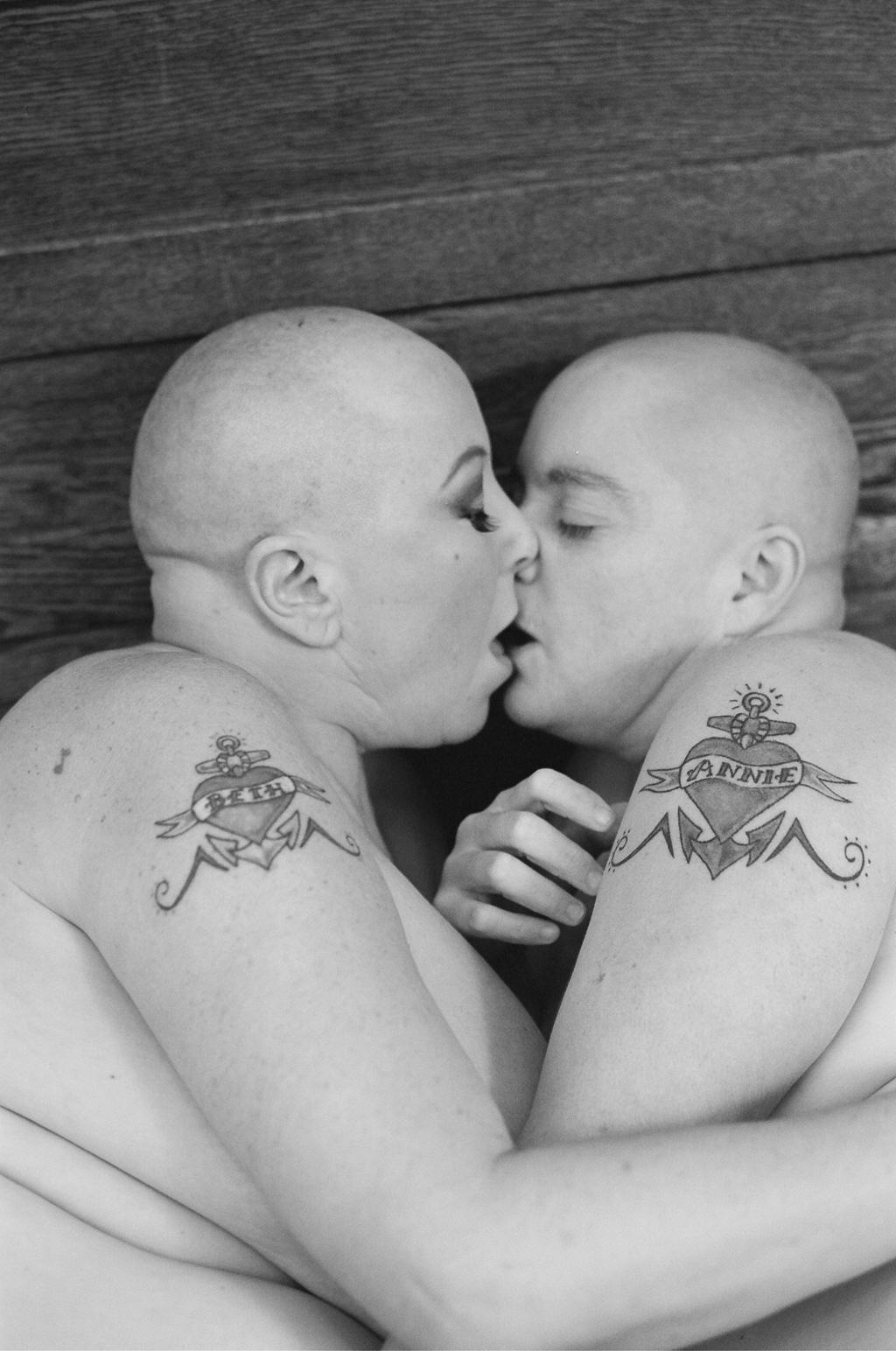


Illness, which had a lengthy history in renaissance painting and other pre-modern art forms, in contemporary art, now seems exclusively portrayed by medical appendages that forgo the human. This became trendy with the advent of post-internet art and post-humanism. Seeing the flesh of Sprinkle’s body, the material for the medical apparatus, seems almost shockingly decoupled from its sexy plastic appendages. In a way, to think of illness today is to think of the medical industrial complex.
Illness, which had a lengthy history in renaissance painting and other pre-modern art forms, in contemporary art, now seems exclusively portrayed by medical appendages that forgo the human. This became trendy with the advent of post-internet art and post-humanism.
Sprinkle and Stephens’ images reflects back to feminist artists in the 70’s and 80’s when the body was present as a political device. Such was the case with Hannah Wilke’s Intra Venus that also documents her own cancer battle and similarly challenges how women are framed or are expected to remain invisible during illness. The shock when seeing the mastectomy procedure in Cancer Erotica is also one that questions how a body should function. When looking through the lens, reality and the pose of reality are layered in order to form the trope of the sick woman. Acting as a stock image, we see Sprinkle performing as nurse, clutching the aluminum pole of her IV-drip. In the scene where she is pleasuring her partner Beth Stephens, another stereotypical image emerges: that of Saint Theresa in Ecstasy cast by Italian Baroque sculptor Bernini. But here, the triangular relationship between woman, Saint, and god is replaced by woman, woman, vibrator.
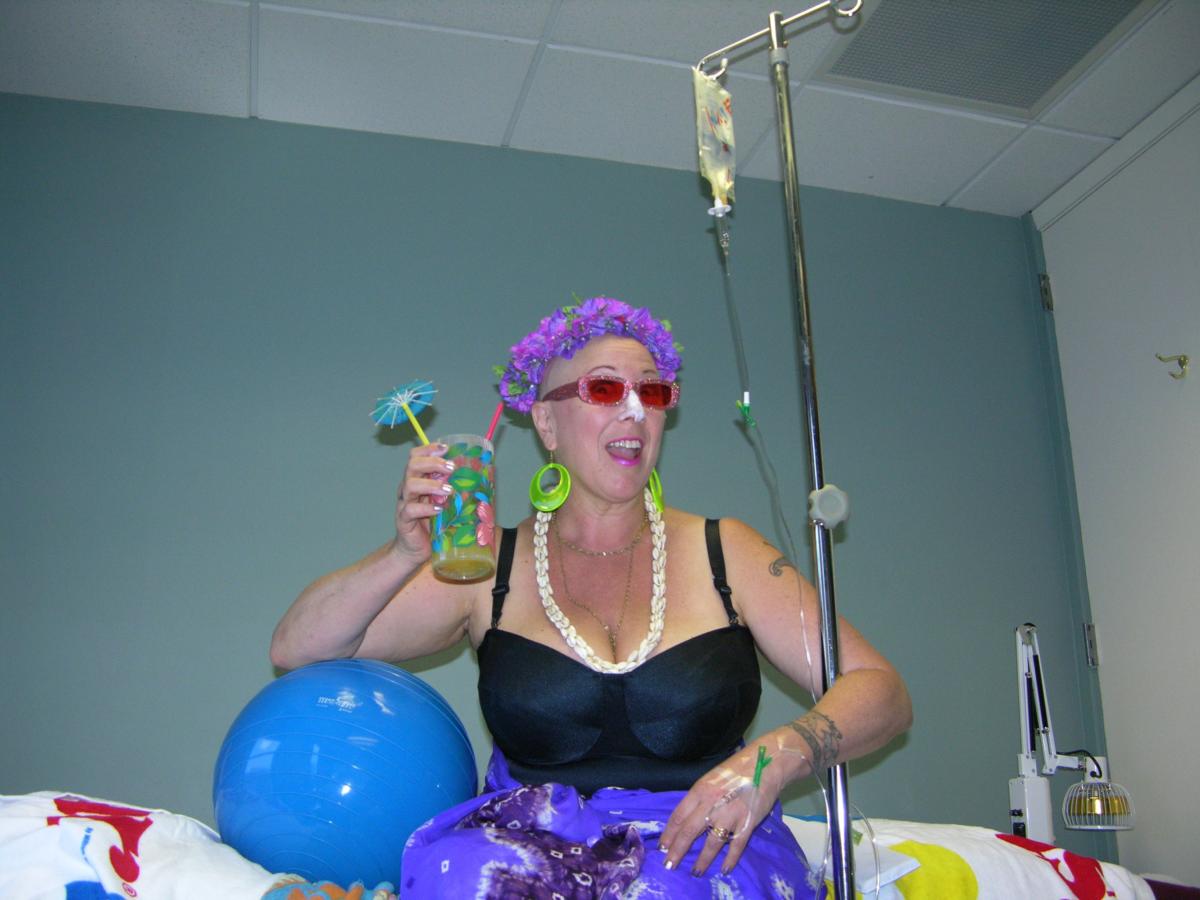
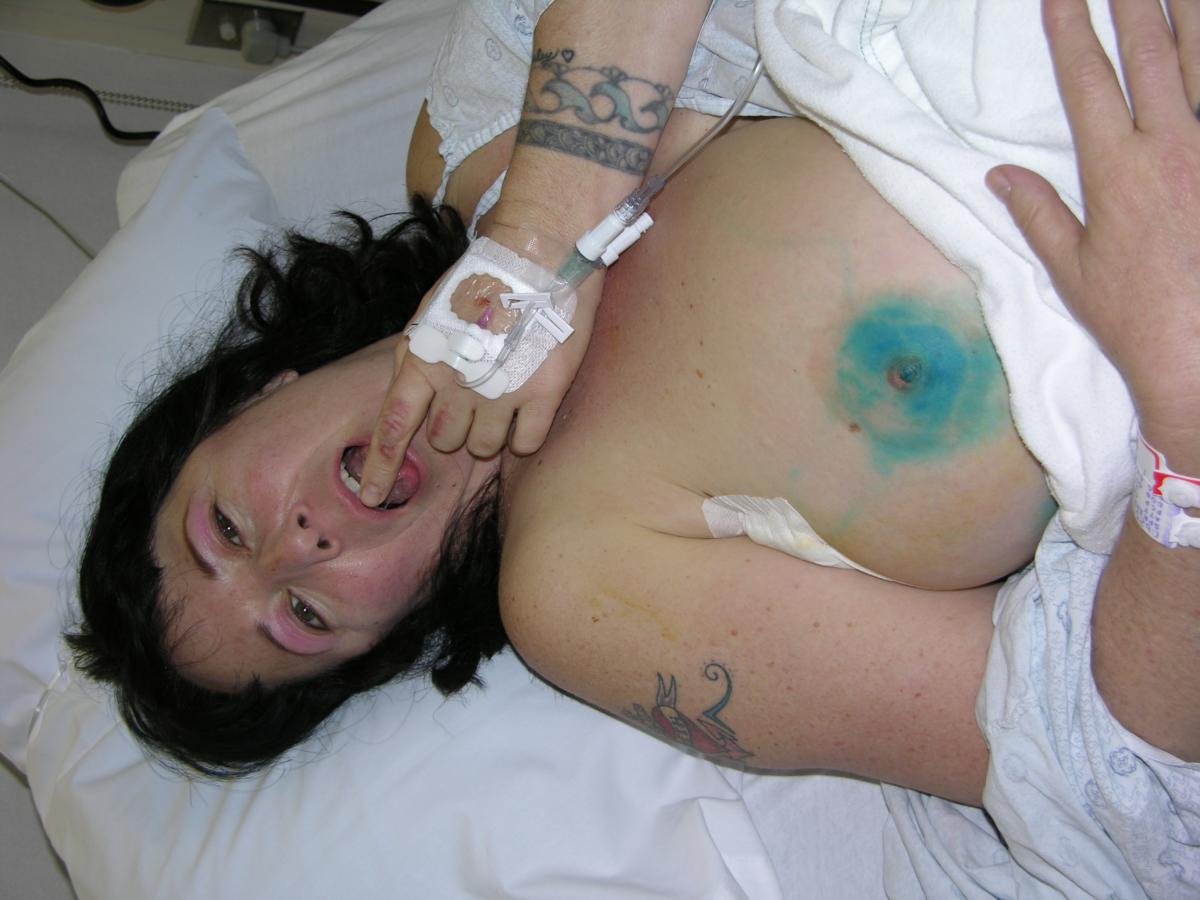
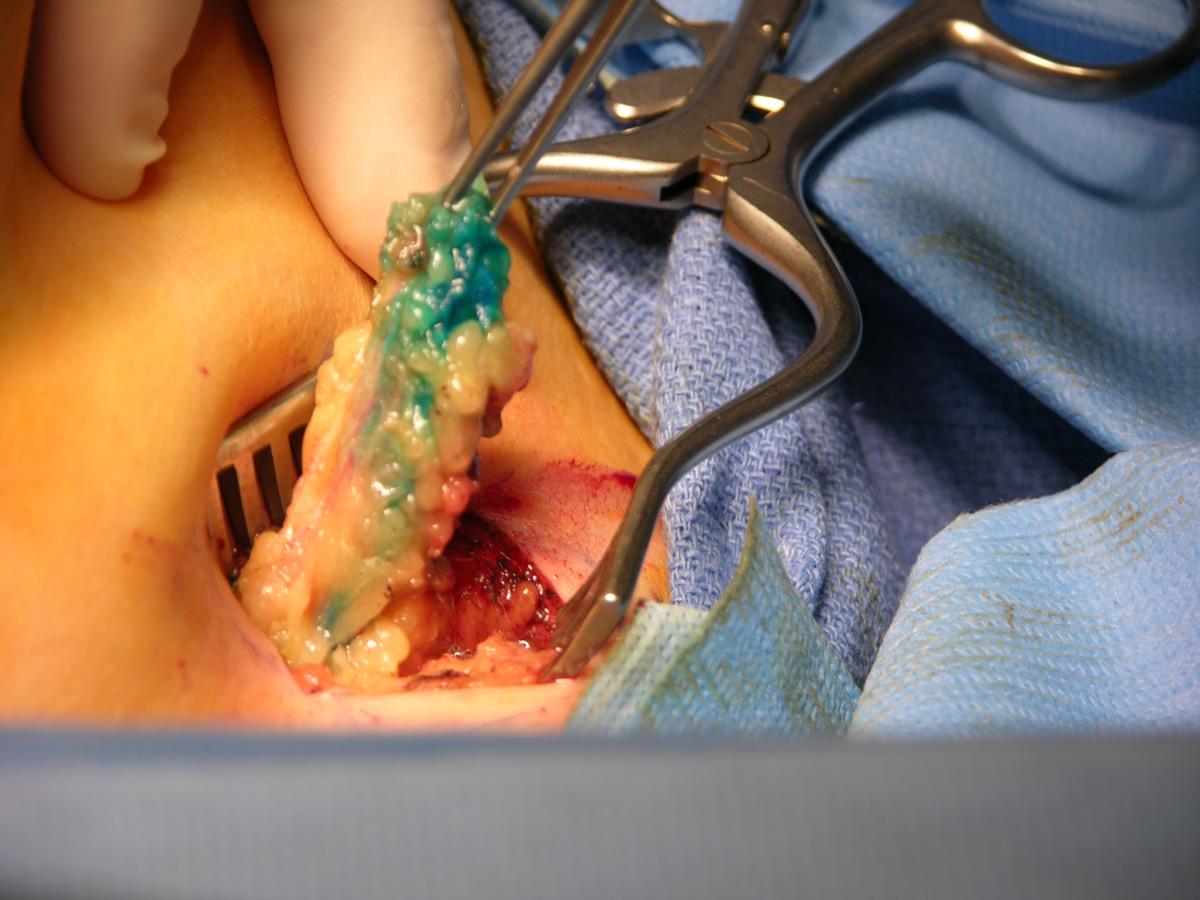
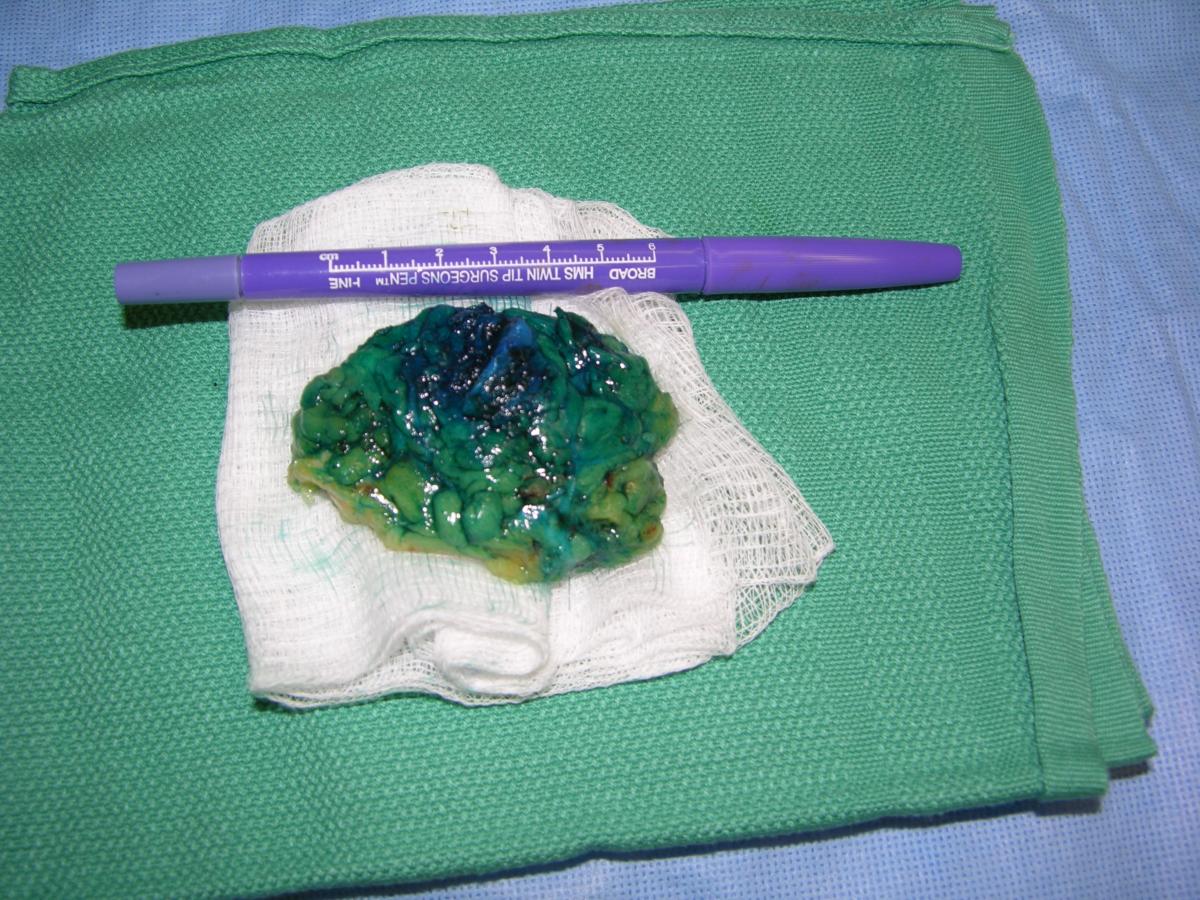
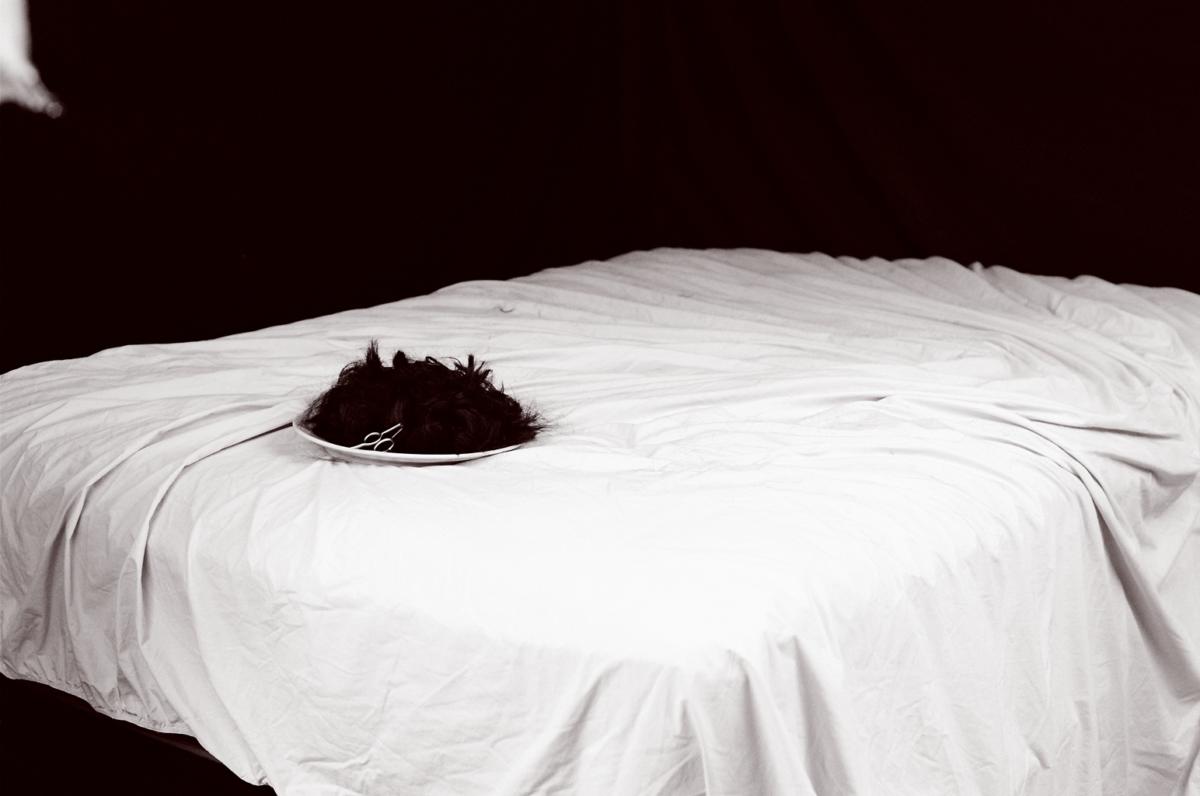
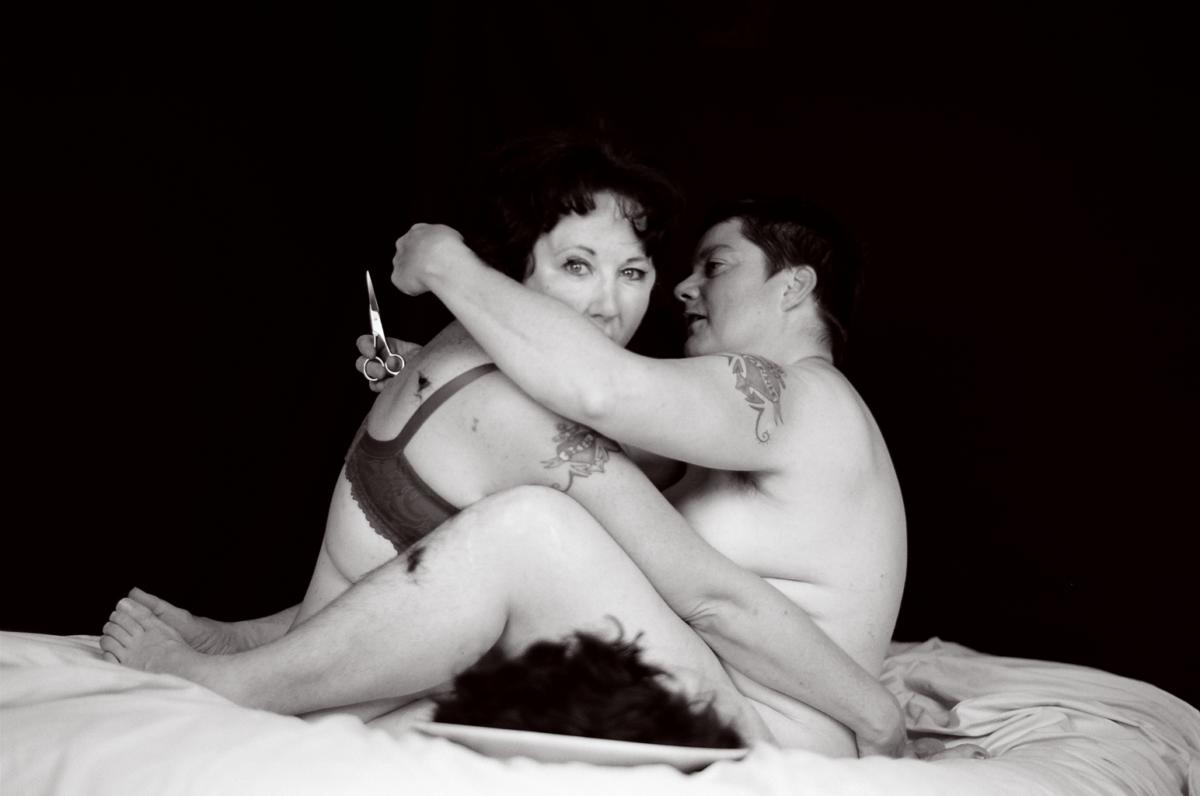
Sprinkle and Stephens, who identify as ecosexuals, work as both activists and artists and have recently appeared in Documenta 14 with the project Cuddling Athens (2017) and Free Sidewalk Sex Clinic (2017). The film, Goodbye Gauley Mountain: An Ecosexual Love Story, by Beth Stephens, screened in conjunction with the exhibition, shows how ecosexuality is married with a stringent activism against mountain top removal in West Virginia, United States. The film is comprised by Stephens’ return to her home town in West Virginia and explains how mountain top removal for coal is destroying communities as well as the ecosystem.
Stephens and Sprinkle propose to change the relationship the body can have to the earth. By seeing nature as a sentient being and the body in a co-dependent relationship with it, the artists work on this relation as a form of activism.
Stephens and Sprinkle propose to change the relationship the body can have to the earth. By seeing nature as a sentient being and the body in a co-dependent relationship with it, the artists work on this relation as a form of activism. In light of the exhibition, mountain top removal can immediately form a foil to the Sprinkle’s mastectomy; yet this allusion is merely rhetorical and not deeply investigated through the aesthetics of the work. How does the human body relate and compare to the body of the earth and how can illness be politicized as a metaphor? These questions hang but go unanswered.
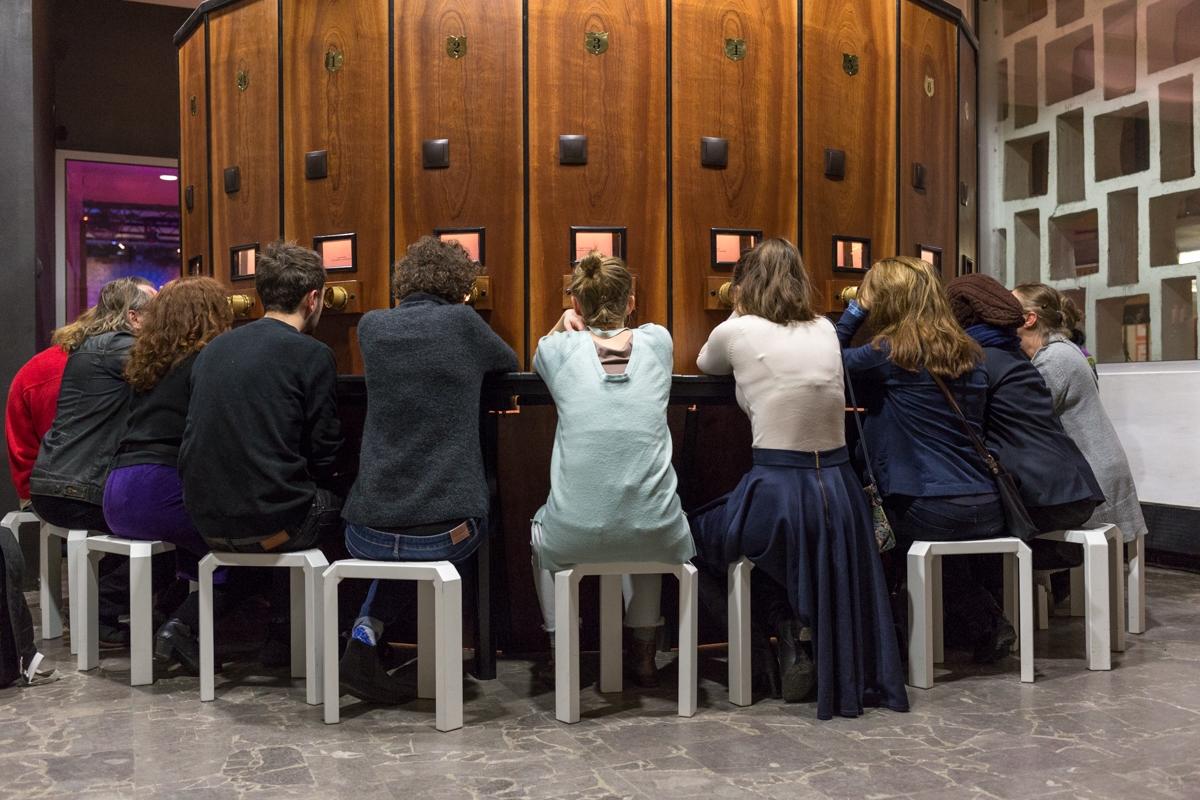
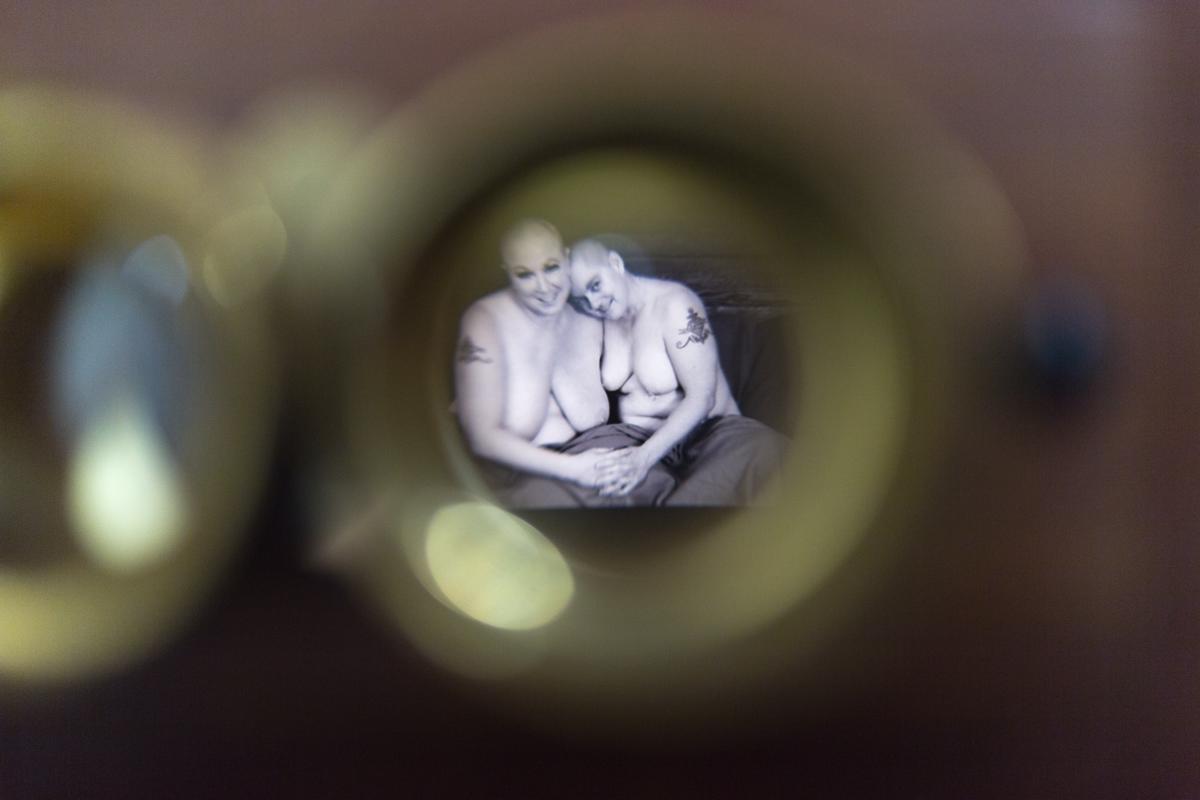
Focusing on the locality of Poznan, this queer relational aesthetics, hinted at through Sprinkle and Stephens’ work, could indeed be a sort of paranormal encounter, which was a subversive and daring decision by curator nierodzińska to show at a publicly run gallery under the right-wing government. It seems then apt that nierodzińska decided to exhibit the works within the frames of an old slide device–literally enclosing the naked ill female body away from the surveillance of the state. At least this is what is suggested by the installation. In a way, the naked female body hides in plain site in optics. When pondering resistance and the aesthetics of resistance, the (fairly traditional and kitsch) images presented by the Sprinkle and Stephens could be viewed as part of a larger instrument of political activity where seeing can be re-politicized.
Imprint
| Artist | Beth Stephens & Annie Sprinkle |
| Exhibition | The Romantic Breast Cancer Adventures of Beth Stephens & Annie Sprinkle |
| Place / venue | The Arsenal Municipal Gallery, Poznań |
| Dates | January 19 – April 1, 2018 |
| Curated by | Zofia Nierodzińska |
| Website | www.arsenal.art.pl/en |
| Index | Arsenal Municipal Gallery in Poznań Beth Stephens & Annie Sprinkle Vanessa Gravenor Zofia Nierodzińska |
